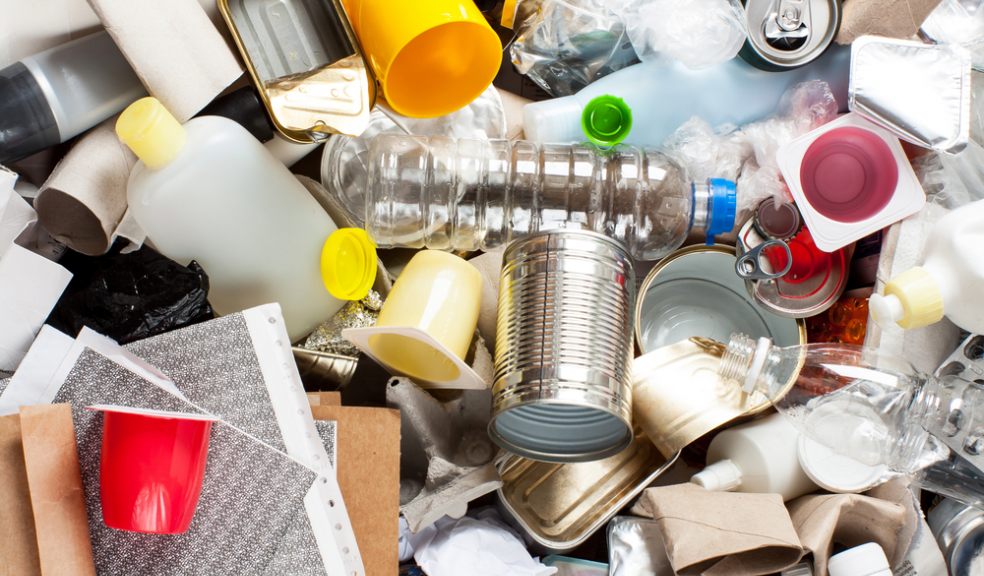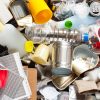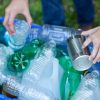
Getting the most from our waste in Devon
Help the environment, save money and energy - all reasons why people in Devon are being encouraged to keep up efforts to prevent waste going to landfill.
At the moment, the recycling rate in Devon stands at 55% which puts it as one of the best performing councils in the country.
However, with a target of 60% by 2020, further work is essential to carry on the good work by householders.
One of the main benefits of recycling is the cost saving. Disposing of a tonne of waste costs around £115 per tonne, whilst recycling a tonne of waste can give an income of between £30 and £700 per tonne depending on the material and market demand.
Recycling is better for the environment than disposing of waste; the less landfill, the fewer emissions of methane, a powerful greenhouse gas.
Recycling also helps conserve important raw materials and protects natural habitats for the future. In addition, using recycled materials in the manufacturing process uses considerably less energy than producing new products from raw materials.
In addition to recycling which is a vital component of Devon’s waste strategy, Devon has looked towards energy recovery as a means of dealing with the very last part of the waste stream after all other efforts to reduce and recycle have been exhausted.
Getting energy from waste is a better option than landfill but recycling is even better.
Devon householders are excellent recyclers but some items still find their way into the wrong bin. Residents are asked to be mindful when disposing of their rubbish and to remove all recyclable items. To find out more about which items are collected from doorsteps, go to www.recycledevon.org
Since metals can be recycled or items often reused, it is helpful to try and make sure that unwanted metals or electrical items do not find their way into residual waste such as unwanted kettles, toasters, hairdryers or cameras. These can be taken to a recycling centre or a re-use group or charity
Larger metal objects such as bed frames or bicycles, equally should be taken to a recycling centre or re--use group (see the Recycle Devon website) or additionally in the case of bikes, an organisation called Ride-On will take unwanted ones.
There are four banks for small electrical items in Exeter at Cowley Bridge Road, Prince Charles Road, Russell Way, and Gladstone Road. For more information, go to Exeter City Council's website
In June alone, just over 74 tonnes of metals were recovered from the bottom ash from the Exeter Energy from Waste (EfW) facility which could have been recycled using the options above. And whilst this metal was recycled, a large amount of metal such as aluminium from drink cans was also found in the ash, but unfortunately this cannot be recovered by the plant at the present time. Every tonne of steel recycled saves two tonnes of raw materials and it can be recycled endlessly into such diverse things as paperclips, train tracks and ship hulls.
Finally, gas bottles can also be recycled so they should be taken to a gas centre or recycling centre for degassing and reuse.
Cabinet member with responsibility for waste, Councillor Roger Croad says; "It's important to view waste as a resource, not just something to be thrown away, that's why we are really encouraging residents to please carry on recycling. Householders do a great job and have made Devon one of the best performing counties in the country. Not only are they helping to protect the environment and save energy, it also helps create employment by supporting jobs in the waste industry. With the Energy from Waste facilities coming on line, it is ever more important to make sure we are separating our waste to ensure EfW supports our recycling principles and we divert as much waste as possible from landfill."
Some interesting facts and figures:
1. Recycling 1 glass bottle saves enough energy to power a computer for 25 minutes. Every year in Devon, we recycle enough to power a computer for every Devon resident for 4 days
2. Every year in Devon we recycle enough clothing to dress everyone in Cornwall, Devon and Somerset in a summer outfit
3. The energy saved by recycling 1 aluminium can will power a TV for 3 hours.
4. Recycling 1 tonne of paper saves 17 trees. In Devon we save enough paper to save nearly half a million trees - that's 500 acres
For more information about Ride On and other bicycle reuse and repair schemes, go to www.recycledevon.org/content/bikes


















